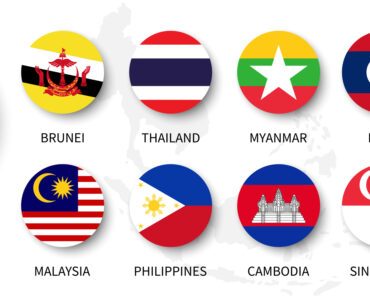Singapore, a cosmopolitan city-state and global financial hub, presents a fascinating linguistic landscape that mirrors its diverse culture and dynamic economy. With a population comprising primarily of ethnic Chinese, Malays, and Indians, Singapore’s official languages include English, Mandarin, Malay, and Tamil. This linguistic diversity not only reflects Singapore’s rich cultural tapestry but also plays a crucial role in its economic landscape, particularly in its major industries and burgeoning business opportunities.
Languages of Singapore
English: The Lingua Franca
English, serving as the lingua franca, is the predominant language of business and administration in Singapore. It was introduced during the British colonial period and has remained a unifying medium in this ethnically diverse nation. In the education system, English is the primary medium of instruction, equipping Singaporeans with the proficiency to engage in global trade and communications.
Mandarin, Malay, and Tamil
Mandarin is widely spoken among the Chinese community, the largest ethnic group in Singapore. The government’s emphasis on “Speak Mandarin Campaign” has bolstered its usage over various Chinese dialects. Malay, though spoken by a smaller portion of the population, holds a special place as the national language, symbolizing the country’s historical roots in the Malay Archipelago. Tamil, representative of the Indian community, is taught in schools and used in media and politics.
Multilingualism in Daily Life
In daily interactions, Singaporeans often use “Singlish,” a colloquial form of English blended with elements of Mandarin, Malay, Tamil, and various dialects. This unique creole, while not used in formal settings, signifies the multicultural identity of Singaporeans.
Major Industries in Singapore
Finance and Banking
Singapore is renowned for its robust financial services sector. It’s one of Asia’s leading financial hubs, offering a broad range of financial services including banking, insurance, and asset management. The use of English in this sector facilitates international transactions, attracting multinational corporations and fostering a conducive environment for business.
Manufacturing and Electronics
The manufacturing sector, particularly electronics, is a significant contributor to Singapore’s GDP. The country is a key player in the production of semiconductors and electronic components, serving as a pivotal link in global supply chains. Multilingual capabilities, especially in English and Mandarin, aid in trade negotiations and collaborations with global and regional partners.
Biotechnology and Pharmaceuticals
Singapore has been investing heavily in the biotechnology and pharmaceutical industries. Leveraging its strategic location and skilled workforce, the country has attracted numerous international biotech firms and research institutions. Proficiency in English, combined with a strong education system, positions Singapore as a leader in scientific research and innovation.
Tourism and Hospitality
Tourism is another vital industry, with Singapore serving as a popular destination for international tourists. The country’s linguistic diversity, especially in service-oriented sectors like hospitality, enhances the experience for visitors from around the world.
Business Opportunities in Singapore
- Fintech and Digital Banking: Singapore’s status as a financial hub, coupled with its technological infrastructure, makes it an ideal location for fintech startups and digital banking initiatives.
- E-commerce and Digital Marketing: With high internet penetration and a multilingual population, there’s substantial growth potential in e-commerce and digital marketing sectors.
- Clean Energy and Sustainability: Singapore’s commitment to sustainable development opens opportunities in clean energy solutions, green technologies, and related consulting services.
- Healthcare and Medical Tourism: The high standard of healthcare in Singapore attracts medical tourists. Opportunities abound in healthcare services, medical equipment, and pharmaceuticals.
- Education and Training Services: The demand for high-quality education and professional training, particularly in finance, technology, and language skills, offers lucrative prospects.
Conclusion
Singapore’s linguistic diversity is not just a cultural characteristic but a strategic asset that has contributed significantly to its economic success. The fluency in English, combined with the presence of Asian languages, positions Singapore uniquely in the global marketplace. It facilitates cross-cultural communication, essential in international business, and plays a vital role in the major industries driving Singapore’s economy.
For businesses looking to venture into the Asian markets, Singapore stands as a gateway, offering a stable, pro-business environment, a skilled multilingual workforce, and a strategic location. Whether it’s finance, technology, healthcare, or tourism, the opportunities in Singapore are vast and varied, backed by a linguistic landscape that’s as dynamic as its economy.






Insightful exploration of Singapore’s linguistic landscape! It’s fascinating how language diversity fuels business opportunities. Thanks for sharing.